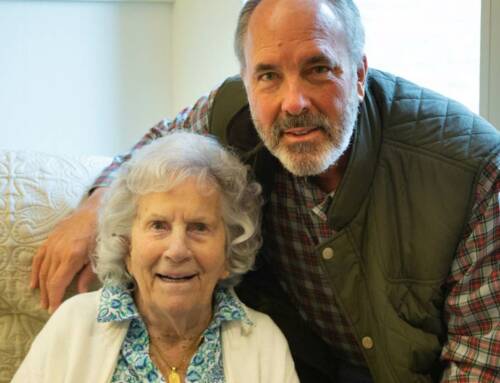With age, many people begin to lose their ability to complete tasks that were once effortless for them. They start to rely on others to help them with daily activities or take care of them entirely. For some, this prompts feelings of helplessness and loss of control.
“I’ve heard residents say, ‘I shouldn’t have done certain physical activities over the years, because I know they impact my health now.’ Or, if they have a stroke and cannot do certain things anymore, they say they feel useless,” Dr. Jess Lee, a clinical psychiatrist at Masonic Village at Elizabethtown, said.
While these feelings of self-deprecation may seem unshakable, for many, a loss of independence is a roadblock that can be hurdled.
A loss of independence and its effects can come in many different forms.
Many seniors experience a loss of independence by losing the ability to see, hear, drive or make decisions like they used to. In general, any change seniors experience that they either cannot control or negatively affects their lives can be considered a loss of independence.
“I see people in health care, personal care and retirement living settings,” Dr. Lee said. “So, it doesn’t matter where they’re at – most people have had feelings of loss. If it’s not themselves experiencing loss of independence, it’s their spouse or friend.”
In many instances, a series of symptoms accompany a loss of independence. This makes the experience more challenging to manage.
“The top three symptoms I see are sleep difficulties, mood changes and social isolation,” Dr. Lee said.
Other symptoms include sudden appetite changes, neglecting personal care or depression. These symptoms can take a large toll on seniors’ quality of life. Studies have even shown that many older adults fear losing independence more than they fear death.
In these adverse situations, seniors may initially find it challenging to accept help. However, knowing who and where to turn to can make it easier to adjust.
There are various resources available to help seniors cope with loss of independence.
Moving to a senior living community like Masonic Village proves beneficial to many seniors struggling with loss. Its services alleviate common burdens, such as home maintenance, and make health care and emotional support readily available. This helps residents cope with the effects of loss of independence and continue to enjoy activities they once loved.
“If a resident has difficulty walking, Masonic Village arranges therapy to evaluate them for the use of an electric wheelchair. We can evaluate those who lose hearing for hearing aids and offer assistive devices – like books on tape – to residents with vision loss,” Karen Hickernell, Social Services Supervisor at Masonic Village at Elizabethtown, said.
These daily living aids can make a significant difference in the quality of life for someone dealing with a loss of independence. However, if they continue to struggle emotionally after aids are incorporated into their lives, they should consider turning to someone who can give thoughtful advice and guidance.
Dr. Lee is a valuable Masonic Village employee residents turn to when dealing with loss of independence. They can also depend on spiritual leaders, therapeutic recreation specialists and social workers like Karen. Staff work to build a rapport with residents, evaluate their situations and try to help them find their way in life again.
When seniors get involved with activities – finding their passions and making friends – they often see significant results. These opportunities can include craft groups, gardening groups, lifelong educational opportunities and more.
“ I encourage staff and family members to think about how your life would be different if you were in their position and lost the sense that they lost,” Dr. Lee said. “If you put yourself in that position, it is easier to be more understanding, empathetic and patient with them.”

About the author: Molly Foster, a senior from Shippensburg University, is a public relations associate at Masonic Villages.




